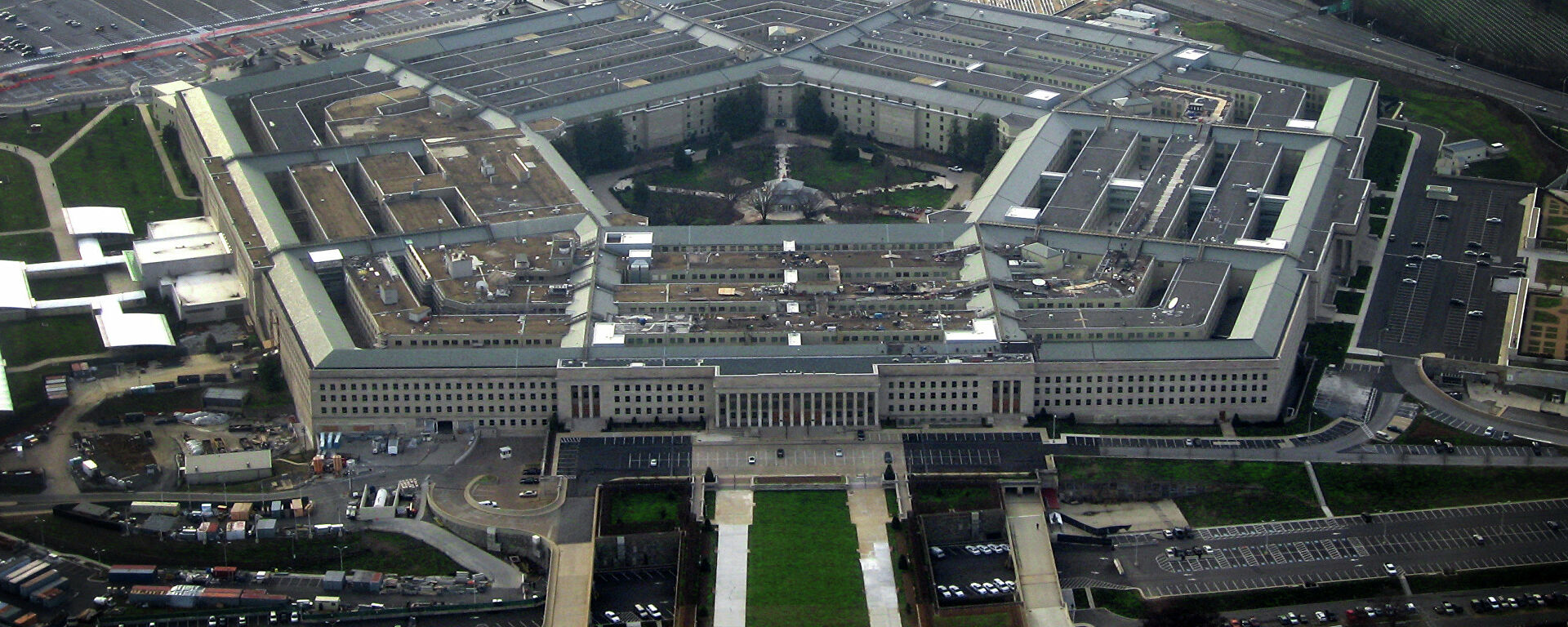https://sputniknews.com/20211221/not-tiktok-alone-us-china-sanctions-war–shifts-to-drone-manufacturers–big-data—report-1091683155.html
Not TikTok Alone: US-China Sanctions War Shifts to Drone Manufacturers & Big Data – Report
Not TikTok Alone: US-China Sanctions War Shifts to Drone Manufacturers & Big Data – Report
As numerous critics in the US claim that Chinese drone manufacturers, such as SZ DJI Technology Co., are sending reams of sensitive data to Chinese intelligence agencies, ranging from essential infrastructure such as bridges and dams to personal data like heart rates and facial recognition, American politicians are trying to end the company’s hegemony, Bloomberg reported on Monday.
2021-12-21T05:42+0000
2021-12-21T05:42+0000
2021-12-21T05:42+0000
drone warfare
military & intelligence
us
china
sanctions
drone
us-china relations
/html/head/meta[@name=”og:title”]/@content
/html/head/meta[@name=”og:description”]/@content
https://cdnn1.img.sputniknews.com/img/07e5/0c/15/1091684376_0:115:2981:1791_1920x0_80_0_0_601cc0f78a5b91309756d4b6eedfafd3.jpg
As numerous critics in the US claim that Chinese drone manufacturers, such as SZ DJI Technology Co., are sending reams of sensitive data to Chinese intelligence agencies, ranging from essential infrastructure such as bridges and dams to personal data like heart rates and facial recognition, American politicians are trying to end the company’s hegemony, Bloomberg reported on Monday.According to the report, a bipartisan effort is currently being applied to a bill that would prohibit the federal government from purchasing DJI drones, while a member of the Federal Communications Commission wants the company’s goods removed from the nation’s market entirely.The Shenzhen-based drone manufacturer has become the face of what the US perceives as one of the most important threats to the nation, that is Beijing’s capacity to access sensitive data on millions of Americans.Over the course of the past couple of months, former top officials from both the Obama and Trump administrations have cautioned that Beijing may be collecting personal data on citizens of competing countries while keeping data on China’s 1.4 billion people strictly private.According to Oona Hathaway, a Yale Law School professor who served in the Pentagon under President Obama, and who wrote an article in Foreign Affairs earlier this month, “each new piece of information, by itself, is relatively unimportant” for the purposes of surveillance and monitoring.Per another report from late November by Matt Pottinger, a former deputy national security adviser in the Trump administration, Chinese President Xi Jinping has been far ahead of the West in grasping the importance of data in achieving both an economic and military advantage. Given this, the war for data and using data is certainly at the centre of the strategic conflict between the US and China, and it has the potential to transform the global economy in the coming decades, especially because of the internet of things, where everything from vehicles to armbands is now gathering and transmitting data. And as scholars and media experts note, harnessing that data is essential for dominating technology like artificial intelligence, which will drive the modern economy, as well as exploiting the flaws of strategic foes.According to Bloomberg’s take on the issue, citing Paul Triolo, a former US government official who specialises in global technology policy at the risk consultancy Eurasia Group, data security concerns “will be a defining issue for the next decade” as technological improvements lead to “explosive demand” for ever more bits of information. He then told the news agency that the result will very certainly be a complete bifurcation of the internet, reflecting the different ideologies of the two nations.The Great Data WarIt is no secret that data security worries are already fracturing manufacturing supply chains and financial markets, with fears that governments could use data obtained from smartphone apps, medical devices, and consumer products like drones to utilise information as a weapon. In the past couple of years, both the US and China have put stronger safeguards in place to protect their citizens’ data, especially from each other. In 2020, the Trump administration honed in on the issue, announcing plans to completely ban two of China’s most popular apps, TikTok and WeChat, while pressing allies to embrace a “Clean Network” free of Chinese firms and equipment.And the Biden administration’s decision to halt American investments in DJI come a year after Trump banned it from obtaining parts from the US. Trump signed an act in 2019 preventing the Defence Department from buying Chinese-made drones and drone parts. DJI was then placed on the Commerce Department’s Entity List a year later, preventing US suppliers from selling to it without an exemption. At the same time, according to the report, Senators Tom Cotton (R-AR) and Marco Rubio (R-FL) have co-sponsored the bipartisan American Security Drone Act, which would prohibit any federal purchases of DJI drones, while Senate Majority Leader Senator Chuck Schumer (D-NY) has proposed identical restrictions in a separate bill.As one might think, one of the main reasons behind targeting DJI is that the company virtually owns the US drone market. According to the FCC data cited in the Bloomberg report, the Chinese company controls more than half of the market, and a separate study reportedly estimates it sells nearly 95% of consumer-targeted unmanned aerial vehicles priced between $350 and $2,000.Since Trump’s decisive actions against the Chinese entities, the bans on TikTok and WeChat have been lifted, with President Biden ordering a broad review to come up with recommendations on how to protect sensitive American data. His administration has not yet released the findings or defined whether data constitutes a national security concern.’Huawei on Wings’In an October interview, one FCC commissioner, Brendan Carr, suggested that the agency explore a block on DJI equipment approvals, citing the “vast amounts of sensitive data” collected by the company’s drones.Carr warned that DJI may be a “Huawei on Wings”, referring to the Chinese telecommunications behemoth that the US has tried to stifle with penalties over espionage concerns in recent years.China has repeatedly slammed measures by the US to deny its companies access to particular technologies and markets, accusing Washington of exploiting the notion of national security “to hobble Chinese companies”. Yet, according to multiple statements, politicians in Beijing have emphasised the importance of becoming self-sufficient in crucial technologies such as sophisticated processors in order to reduce reliance on Western technology.Per Bloomberg, concerns about the security threats allegedly posed by DJI’s drones are starting to hurt the company’s bottom line. The firm’s stake in the $2 billion global commercial drone industry fell to 54% in the first half of 2021, down from 74% in 2018, the news agency noted, citing a report by the private research firm DroneAnalyst.Kay Wackwitz, CEO of Drone Industry Insights, however, told the outlet that the nation’s attacks on the company are more about safeguarding America’s ability to manufacture drones than data concerns.”The amount of data is way too big, so where is the actual harm? To me, it appears to be a reason to push the Chinese manufacturers out of the market”, he said.
https://sputniknews.com/20211217/china-deplores-new-us-sanctions-against-xinjiang-tech-companies-1091613326.html
https://sputniknews.com/20210602/no-malicious-code-or-intent-pentagon-audit-reportedly-clears-two-china-made-drones-for-govt-use-1083058225.html
Hess
What a BS? Americans politicians have turned into retard homosexuals who can not think.
0
Kiwi
Can’t wait to see China retaliate and ban Apple.
0
3
us
china
2021
News
en_EN
drone warfare, military & intelligence, us, china, sanctions, drone, us-china relations
DJI, the world’s largest drone manufacturer, and seven other Chinese companies were placed on the US Treasury’s blacklist last week in connection with the Xinjiang issue. The corporations’ publicly traded stocks will be unavailable to Americans to buy or sell.
According to the report, a bipartisan effort is currently being applied to a bill that would prohibit the federal government from purchasing DJI drones, while a member of the Federal Communications Commission wants the company’s goods removed from the nation’s market entirely.
The Shenzhen-based drone manufacturer has become the face of what the US perceives as one of the most important threats to the nation, that is Beijing’s capacity to access sensitive data on millions of Americans.
“But combined, the pieces can give foreign adversaries unprecedented insight into the personal lives of most Americans”, she added.
“If Washington and its allies don’t organise a strong response, Mr Xi will succeed in commanding the heights of future global power”, he wrote.
Given this, the war for data and using data is certainly at the centre of the strategic conflict between the US and China, and it has the potential to transform the global economy in the coming decades, especially because of the internet of things, where everything from vehicles to armbands is now gathering and transmitting data.
And as scholars and media experts note, harnessing that data is essential for dominating technology like artificial intelligence, which will drive the modern economy, as well as exploiting the flaws of strategic foes.
According to Bloomberg’s take on the issue, citing Paul Triolo, a former US government official who specialises in global technology policy at the risk consultancy Eurasia Group, data security concerns “will be a defining issue for the next decade” as technological improvements lead to “explosive demand” for ever more bits of information.
He then told the news agency that the result will very certainly be a complete bifurcation of the internet, reflecting the different ideologies of the two nations.
“The democratic and authoritarian digital worlds will be built on largely different hardware, with different standards, and limited points of connection”, Triolo said. “This will drive up costs for businesses operating across these two spheres, reduce innovation, and lead to geopolitical tensions, reduced trade, and a much more complex world for companies to operate within. Other countries will be forced to choose sides in this divide, and this will be painful and costly”.
The Great Data War
It is no secret that data security worries are already fracturing manufacturing supply chains and financial markets, with fears that governments could use data obtained from smartphone apps, medical devices, and consumer products like drones to utilise information as a weapon.
In the past couple of years, both the US and China have put stronger safeguards in place to protect their citizens’ data, especially from each other.
In 2020, the Trump administration honed in on the issue, announcing plans to completely ban two of China’s most popular apps, TikTok and WeChat, while pressing allies to embrace a “Clean Network” free of Chinese firms and equipment.
And the Biden administration’s decision to halt American investments in DJI come a year after Trump banned it from obtaining parts from the US.

At the same time, according to the report, Senators Tom Cotton (R-AR) and Marco Rubio (R-FL) have co-sponsored the bipartisan American Security Drone Act, which would prohibit any federal purchases of DJI drones, while Senate Majority Leader Senator Chuck Schumer (D-NY) has proposed identical restrictions in a separate bill.
As one might think, one of the main reasons behind targeting DJI is that the company virtually owns the US drone market. According to the FCC data cited in the Bloomberg report, the Chinese company controls more than half of the market, and a separate study reportedly estimates it sells nearly 95% of consumer-targeted unmanned aerial vehicles priced between $350 and $2,000.
‘Huawei on Wings’
Carr warned that DJI may be a “Huawei on Wings”, referring to the Chinese telecommunications behemoth that the US has tried to stifle with penalties over espionage concerns in recent years.
Yet, according to multiple statements, politicians in Beijing have emphasised the importance of becoming self-sufficient in crucial technologies such as sophisticated processors in order to reduce reliance on Western technology.
Kay Wackwitz, CEO of Drone Industry Insights, however, told the outlet that the nation’s attacks on the company are more about safeguarding America’s ability to manufacture drones than data concerns.
“The amount of data is way too big, so where is the actual harm? To me, it appears to be a reason to push the Chinese manufacturers out of the market”, he said.
 Unmanned Aerial Vehicle The latest drone news
Unmanned Aerial Vehicle The latest drone news

